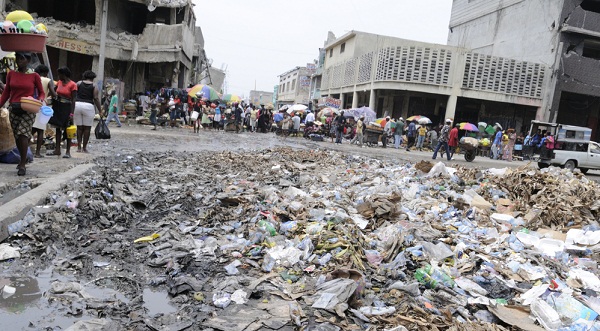Ever since a devastating earthquake hit Haiti in 2010, the country has suffered from a severe sanitation crisis. Especially in the city of Port au Prince where the one garage dump is literally overflowing with waste, and the street are littered with trash. But a new partnership between the government of Haiti and Pittsburgh-based International Electric Power (IEP) is set to help Haiti in its cleanup efforts.
Project Phoenix is a public-private agreement between the parties to build a power-generating facility that aims to remove waste from the streets of Port au Prince while decreasing the country’s dependence on foreign fuel. The project is anticipated to create nearly 1,800 jobs for skilled workers and provide 30 megawatts (MW) of green, base-load electric power fueled by municipal solid waste. The new integrated waste management and power plant will be located on 400 acres of land about 10 miles north of the city.

Municipal waste will be collected by IEP Waste Management in collaboration with Ros Roca of Spain, Europe’s largest supplier of waste management equipment, and Boucard Waste Management, which has been collecting waste in Port au Prince for more than 20 years.
IEP said the new waste management system will use specially designed collection vehicles and segregation equipment developed to collect and process more than 3,000 tons of municipal waste daily throughout the seven municipalities of Port au Prince. Project Phoenix will work in conjunction with Haiti’s government collection service, Service Metropolitain de Collecte des Residus Solides (SMCRS) as well as private waste collectors.
The Project Phoenix waste-to-energy plant will be capable of producing 720 megawatt-hours of sustainable electricity per day (that’s running around the clock at 30 MW), enough power for more than 75,000 Haitian households, IEP said. The company touted numerous environmental, social and economic benefits for the country, not the least of which will be an estimated total of close to 10,000 jobs overall.
Project Phoenix will seek to eliminate open, low temperature burning of waste and the clogging of canals by years of uncollected plastics, improving water and air quality as well as the health of Haitian citizens. By burning waste in a controlled, high-temperature environment, the project will eliminate the current slow, low temperature incineration of waste in the streets, ridding Port au Prince of dioxins and other airborne toxins. The new waste collection system is planning to start in the fourth quarter of this year.
Project Phoenix requires a U.S. investment of approximately $250 million. IEP has assembled an international team of companies to complete the project. Over its anticipated 30 years of operation, the new plant is projected to save the government of Haiti more than $4 billion dollars.